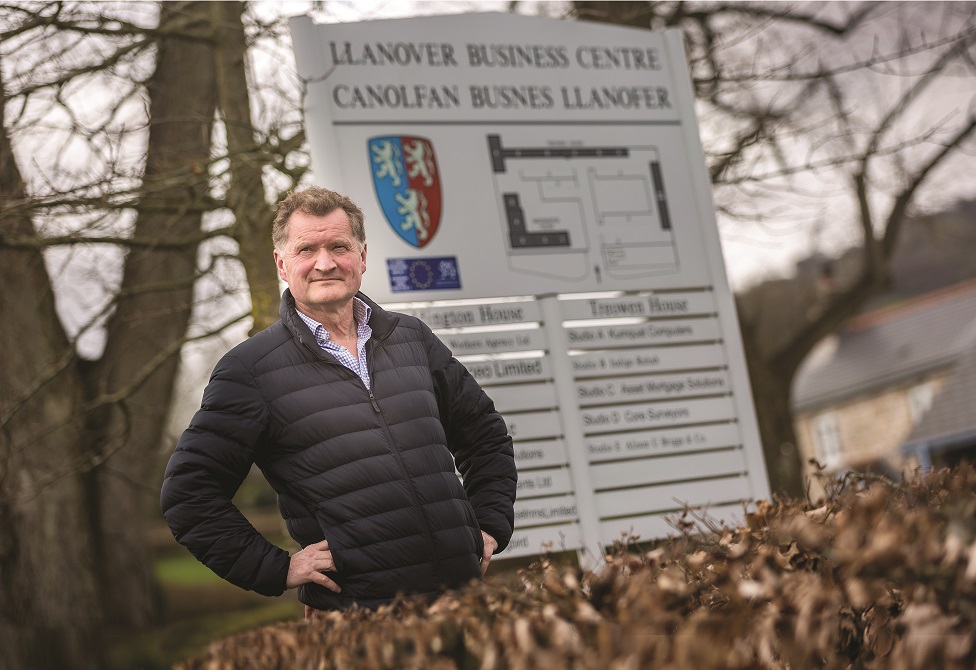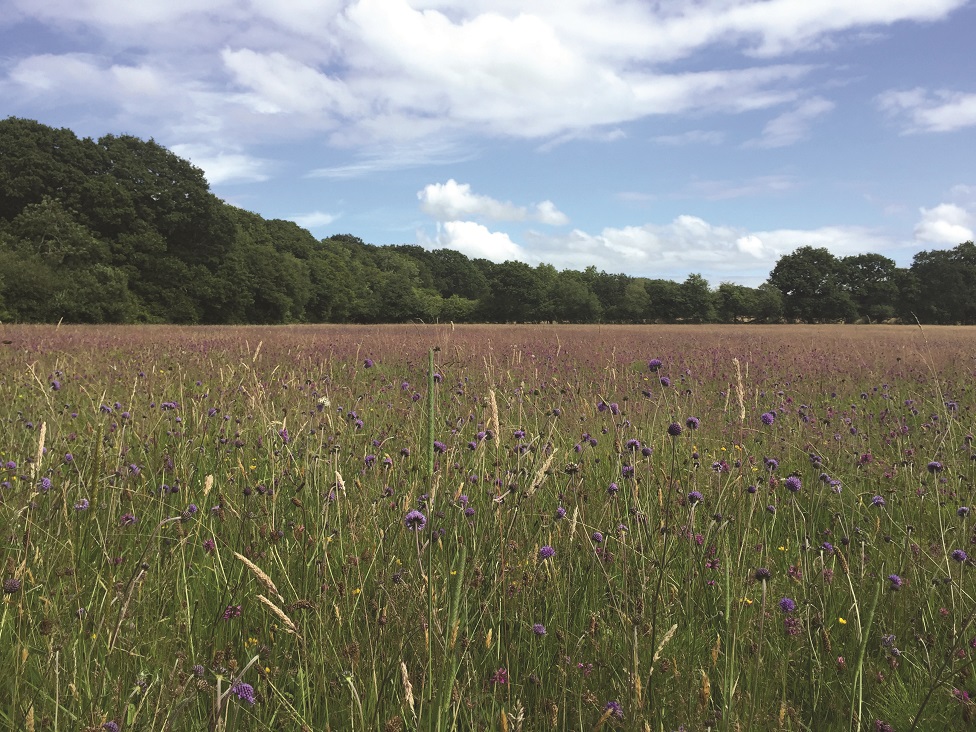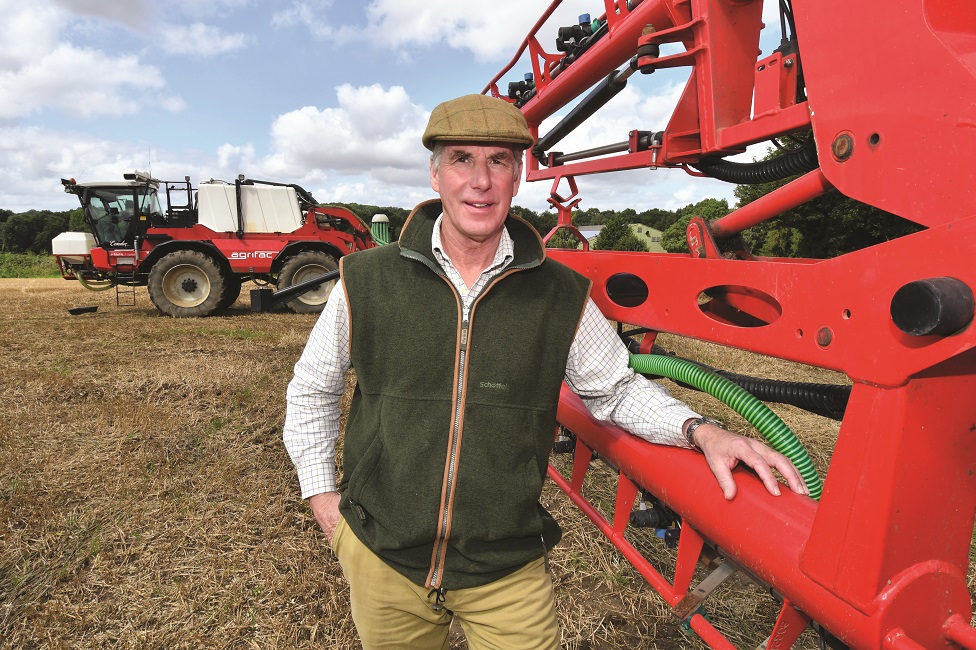Forward thinking: How three landowners are preparing for Brexit
Three landowners share their views on Brexit with Andrew Shirley and discuss how they are preparing their businesses for the challenges that lie ahead.
10 minutes to read
Ross Murray
The LLanover Estate
Location: Monmouthshire
Type: Diversified Estate
Acres: 5,000
Farming: Tenanted - livestock/dairy, in-hand-forestry, Black Welsh sheep,
Diversifications: Let houses, 25 let commercial properties, fishery
Unlike many modern villages, Llanover in Monmouthshire’s Usk Valley has a bustling heart where small businesses thrive and passers-by and locals stop to enjoy a tasty coffee or bite to eat.
I’m actually enjoying a sandwich myself in the Hummingbird Café located in a courtyard of converted redundant farm buildings on the Llanover Estate. Opposite me is Ross Murray, who, along with his wife Elizabeth, are stewards of the estate, which is owned by a family trust.
“It’s rare to find a virtually intact estate village like Llanover anymore in Wales,” explains Ross, former president of the CLA and now chairman of Knight Frank’s Rural Asset Management business. The 5,000-acre rural estate, about a third of which lies within the Brecon Beacons National Park, includes 13 tenanted farms and a portfolio of houses.

Above: Ross Murray at the Llanover Estate's business park
But it’s the 25 diverse commercial businesses ranging from office space to furniture makers, from care homes to an equine vet, and which between them employ around 80 people, that are increasingly the strategic focus, both financially and in terms of helping to empower and revitalise the local community.
“There is a strong social theme to what we do here,” says Ross. To help explain the history behind this ethos of stewardship, he shows me an iconic war memorial in the heart of the village dedicated to the only son of Major General The Lord Trewoen, the great, great uncle of Mrs Murray, and 17 other villagers who died in World War One.
Recognising that a lack of affordable housing was one of the big issues affecting estates like Llanover in rural post-war Wales, Lord Trewoen built a new Arts & Crafts village including a new school around his son’s memorial.
Brexit will mean working even more closely with the local community, and in particular the estate’s tenant farmers, says Ross. While agriculture may no longer be the financial core of Llanover it is still its spiritual heart. “Without farming there is no estate so we have to create profitable partnerships.”
"Natural capital will become another income stream. We’ll be farming nature for profit. The government just needs to work out how it will be paid for."
An example includes supporting a tenant with an organic dairy herd with an investment in a new barn that will allow the business to expand.
“He is very excited and wants to take on more land, Brexit can’t come quickly enough for him as he sees lots of potential new export markets.”
But, conversely, Brexit also means reviewing other areas of the business that will become less viable. Ross has just planted almost 100 acres of woodland on a block of hill land that had been given up by a tenant. “This sheep farm was problematic and the numbers didn’t stack up to re-let it, so trees seemed to make more sense. We take our forestry seriously anyway.”
Ross believes tree-planting and other environmental activities will become more crucial as landowners are increasingly paid for delivering public goods. “Natural capital will become another income stream. We’ll be farming nature for profit. The government just needs to work out how it will be paid for.”
Ben Goldsmith
Cannwood Farm
Location: Somerset
Type: Livestock/Lifestyle
Acres: 160
Farming: White Park cows, Tamworth pigs, Wildflower meadows
Diversifications: Livery yard, Box scheme
Ben Goldsmith bubbles with excitement as he shows me around the 160-acre Somerset farm that he has owned for the past 10 years.
The environmental investor and campaigner believes that Brexit is a “massive opportunity” to “completely reimagine” how the £3bn that is given to farmers in the form of CAP payments is spent and distributed.
As a recently appointed member of Defra’s executive board – although he stresses he is there to help implement, not create, policy – he’s very much in tune with Michael Gove’s “ground-breaking” vision that any payments to landowners and farmers should be linked to the delivery of public goods.
Although the details of how such a scheme will work have yet to be finalised, Mr Goldsmith envisions it working on a market-led, catchment-level basis.
Farmers would be paid for delivering benefits such as flood prevention, improved water quality, soil protection, carbon sequestration and management of invasive species not just by central and local government, but increasingly by the private sector, conservation NGOs and even philanthropists.

Above: Ben Goldsmith's wildflower meadow
“The beauty of this new approach is that those farms that have become the most marginalised economically are typically in the upper catchment areas where many of these potential services can be delivered.” Unsurprisingly for such an ardent conservationist, he is already practising what he preaches.
His own farm on the headwaters of the river Frome is home to a herd of White Park cattle, “the oldest breed in the UK,” he says proudly.
During my visit the cows are tucking into hay cut from wildflower meadows designated as an SSSI. “They’ve never been ploughed or fertilised and the grass is more nutritious because of the huge number of different flowers, grass species and herbs that grow there,” Mr Goldsmith says.
He has also planted around 80,000 trees, joining up two blocks of existing woodland, and dug a number of ponds, one of which he believes is being visited by beavers, once-native to the UK and whose reintroduction he passionately believes in; not least because of their contribution to flood management. “They help to slow the flow of water from upland to lowland.”
Other species that Mr Goldsmith believes should be reintroduced include the pine martin, “they do a great job of controlling grey squirrels” and the golden eagle in England, wild cats and even lynx. “I think we have a moral duty to right the moral wrongs of the past.”
Such a stance and some outspoken comments on the impact of intensive agriculture and upland sheep farming haven’t endeared him to everybody within the farming community, but he is adamant that he is a pragmatist and is very much on the side of farmers. “It’s critical that landowners know they can manage problem animals,” he says.
When it comes to the delivery of public goods, he acknowledges that if the system as he envisages it is to work, farming has to be profitable. In his view there are three things that have to happen in parallel with this new model.
“First, the unfair buying power and anti-free market practices of the major supermarkets need to be curbed. Second, the government should focus its attention on buying high quality British produce across all departments – something difficult under EU rules.
"And finally, food imports must meet the same high production standards to which our own farmers adhere in order to ensure a level playing field.”
Few farmers would argue with any of those points and while his enthusiasm for a green Brexit may prove less contagious, he believes it is the only answer. “Subsidy, unsustainable politically in any case, will be a thing of the past.”
Tim Breitmeyer
Westoe Farm
Location: Cambridgeshire
Type: Arable
Acres: 1,650
Farming: cereals, sugar beet, OSR, beans
Diversifications: Contracting business
Just as I’m setting off to talk about Brexit with CLA President Tim Breitmeyer on his 1,650-acre Cambridgeshire arable farm, the news breaks that supermarkets Asda and Sainsbury’s are proposing to merge. One of the purported benefits behind the move is that it will give the combined stores even greater buying power.
When I ask for his reaction Mr Breitmeyer rolls his eyes as if to suggest that his members already have enough on their plates to worry about.
But ensuring farmers and landowners get a fair return from the UK’s £113bn food supply chain should go hand in hand with negotiating a good deal from Brexit, he suggests.
“Integrating agriculture more effectively into the supply chain is very important. If just a penny per loaf of bread, for example, went back to the farmgate it could add £100/ha to a farmer’s bottom line. That may go some way to making up for the impending loss of their Basic Payment.”
However, Mr Breitmeyer does suggest that some of the responsibility of coping with Brexit lies with farmers themselves. There is an issue for some in the industry with productivity in the UK, he says, pointing to average annual growth of just 1.3% over the past 30 to 40 years.

Above: CLA President Tim Breitmeyer
“We’ve been flat-lining. Other EU countries, particularly Holland, have been doing much better. On the continent farmers generally have a more collaborative spirit, work together better and governments have continued to aggressively support research.”
A totally new mind set is needed, he believes. “We can’t rely on the status quo, we will have to think of ourselves even more as rural businesses, not just farmers. We will need to sweat every clod of soil, every tree, every brick and every building.”
In addition to his own land, Mr Breitmeyer contract farms a further 3,100 acres of arable land and says he is already looking to restructure some of the agreements to take account of Brexit.
“I’m astounded that some people are still prepared to pay rent of £170/acre for everyday arable land.” Future arrangements may look very different without the Basic Payment underpinning them, he reckons.
Accepting that the industry has a lot of work to do itself doesn’t let the government off the hook though. Mr Breitmeyer says he is “horrified” by the lack of emphasis on profitability in Defra’s Health and Harmony consultation on the future of farming post-Brexit.
“The future could be very exciting, especially for the next generation of young innovative farmers, but we need a trade deal with the EU that we can understand."
“First and foremost before we start to talk about providing environmental services we need an industry that has profitable food production as its core. Accepting that a significant number of businesses really don’t at the moment is something I’m struggling to get Michael Gove and his officials to buy into.”
He also believes Defra’s proposal to cap the largest support payments from 2020 is misguided. “It’s erroneous to believe that most of the largest claimants are just rich landowners.
Often, they are hardworking farming businesses that have built up land holdings over many years, much of it rented.”
That said, Mr Breitmeyer doesn’t disagree with Mr Gove’s “public money for public goods” mantra regarding future support providing it delivers greater value, is flexible and administered effectively.
Improving soils (he has broadened his own rotation away from the traditional wheat and oil seed rape stalwarts and is using much more organic fertiliser) and addressing climate change targets, being examples of how a future system could be part of a landowner’s future business model. But he is concerned about the speed of change being suggested and the issues around food production already highlighted.
“The future could be very exciting, especially for the next generation of young innovative farmers, but we need a trade deal with the EU that we can understand, we need significant investment into research and development and training, and this new public goods model needs to reward farmers properly, not just be about income foregone, and it needs to be given time to work properly.”
Get it wrong and businesses of all shapes and sizes could fail, he warns, to the detriment of the environment and rural economy as a whole.
This article appears in 2018's The Rural Report - a unique guide to the issues that matter to landowners.